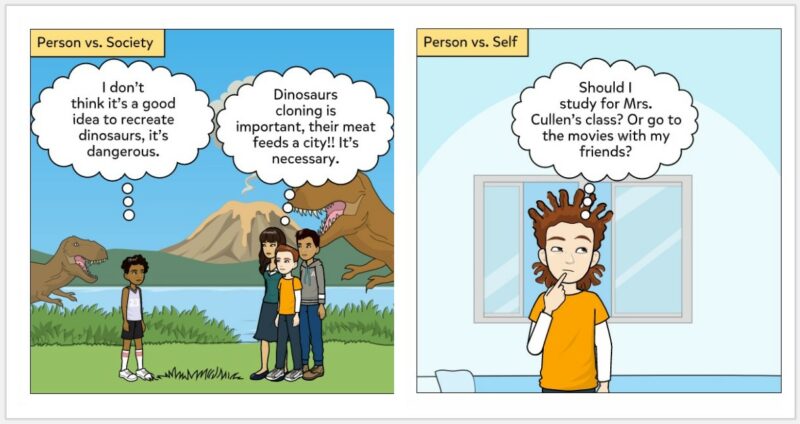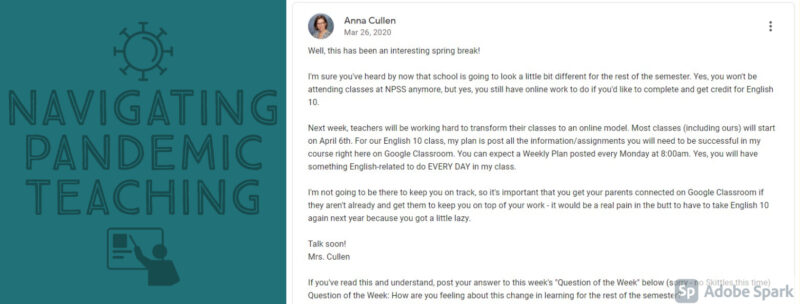For this week’s blog post, I’ve been asked to create a checklist of key criteria for critically evaluating web-based resources, digital tools, or applications. I decided to use this activity to create a useful checklist for my students in future research papers.
A Quick Note on the Two Checklists this Week
I found Kathy Schrock’s (2018) checklist very helpful and influential in generating my own checklist. It was thorough and most pieces I found relevant to my purpose. I found Stephen Downes (2005) checklist admittedly quite disturbing. Though he makes valid points with the running theme being don’t trust everything you read on the internet, but the way he made his argument didn’t offer specific guidance for finding reliable sources. Instead, he seems to spark paranoia around governing bodies and scientists. This made me think about the COVID-19 vaccine debate happening right now. If I were on the side opposed to the vaccine, Downes article would only reinforce my hesitancy by making me believe that authorities lie, my knowledge is just as good as someone else (expert or no), and that I should stick to sites that I trust (or perhaps that I trust to align with my already established beliefs).
After reviewing all the different checklists this week, here are come criteria I would find valuable in my secondary English classrooms:
Part 1: Visual Aspects of the Page
- Is the spelling correct on the page?
- Are headings and subheadings used effectively to organize information?
- Can you find the author?
- Can you find the publication date?
- Are there advertisements on the page? Are they distracting?
- Are there links/references listed as to where the author got their information?
- Are there photographs or images? Are the relevant to the information?
Part 2: Content
- Is the title accurate for the content of the page? Does it hold any bias?
- Can you tell when the document was created? Has it been updated recently? Is the information older than 5 years?
- Is the information on the site useful for your purpose?
- Is the information on the site come from peer-reviewed or academic sources?
- Does the content you to other online media resources that are useful?
- Is any of the information contradicted by a source you found elsewhere?
Part 3: Authority & Bias
- Who is the author? Who created this page? What authority do they have on the subject? What biases may they hold? Are they currently an expert in the field?
- What organization published the information? Are they reliable? What biases may they hold?
- What is the domain of the page? How does it influence your evaluation of its reliability?
- What references/resources are cited on the page? How do they affect any possible bias of the information?
- How do the images/photographs on the page make you feel about the subject? How could they be influencing a bias?
Schrock, K. (2018). Critical evaluation of information. Kathy Schrock’s Guide to Everything. Retrieved from http://www.schrockguide.net/critical-evaluation.html
Downes, S. (2005, July 16). Principles for evaluating websites [Web log post]. Retrieved from http://www.downes.ca/post/4
Image credit: https://pixabay.com/photos/office-selection-write-paper-3199659/






Recent Comments